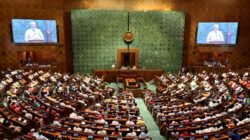Arab nations are preparing for a significant surge in the cost of sugary products after reports this week revealed that India, a major supplier of agricultural goods to the import-dependent Middle East, intends to halt sugar exports from October of this year until September of the following year.
According to information from three Indian government sources who spoke to Reuters, New Delhi has imposed this 11-month ban, the first of its kind in seven years, primarily due to reduced sugarcane yields caused by insufficient rainfall during the summer monsoon season. Pushan Sharma, director of research at CRISIL Market Intelligence and Analytics, explained that this potential ban is a result of inadequate rainfall in crucial sugarcane-growing regions.
Despite normal rainfall patterns in the sugarcane-producing states of Uttar Pradesh, Maharashtra, and Karnataka this summer, Sharma noted that “a few key districts have received lesser rainfall, and the yields are expected to be lower” during the 2023-24 sugar season.
The decline in sugar production is a significant concern for the sugar industry, as these states alone contribute to over half of India’s total sugar production. Reduced output in India and its absence from the global market are expected to lead to price hikes, further impacting food markets worldwide, particularly in the Arab world, which heavily relies on sugar imports from India.
Fadel El-Zubi, a lead consultant for the UN Food and Agriculture Organization in Jordan, expressed concerns about the potential consequences, stating that some Arab countries may struggle to absorb the price increases, leading to challenges in imports, stockpiles, and distribution processes. This could result in further inflation in these countries, particularly given the existing weakness of their local currencies. El-Zubi emphasized the need for proactive measures in anticipation of potential disruptions in the food market.
Source: Arab News










